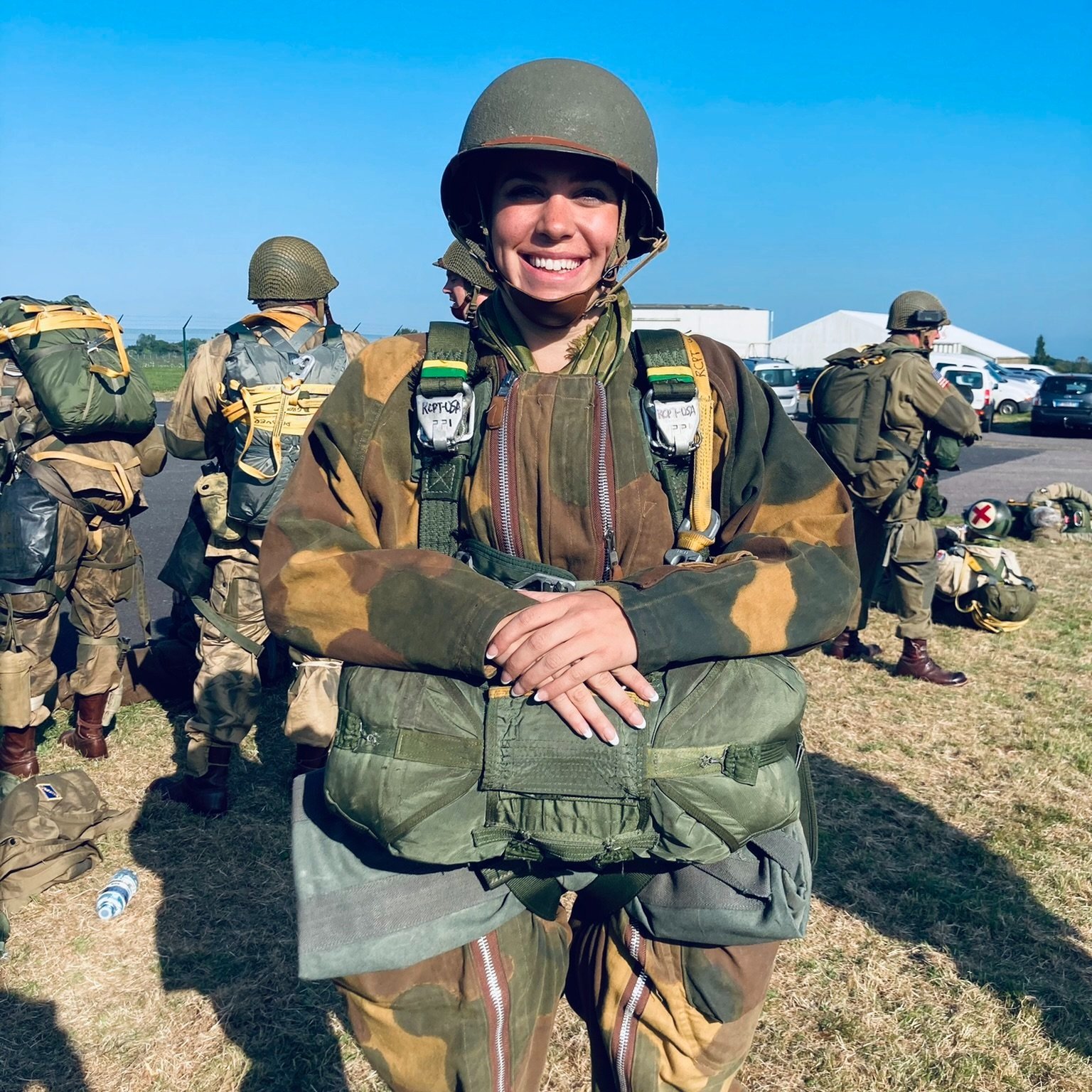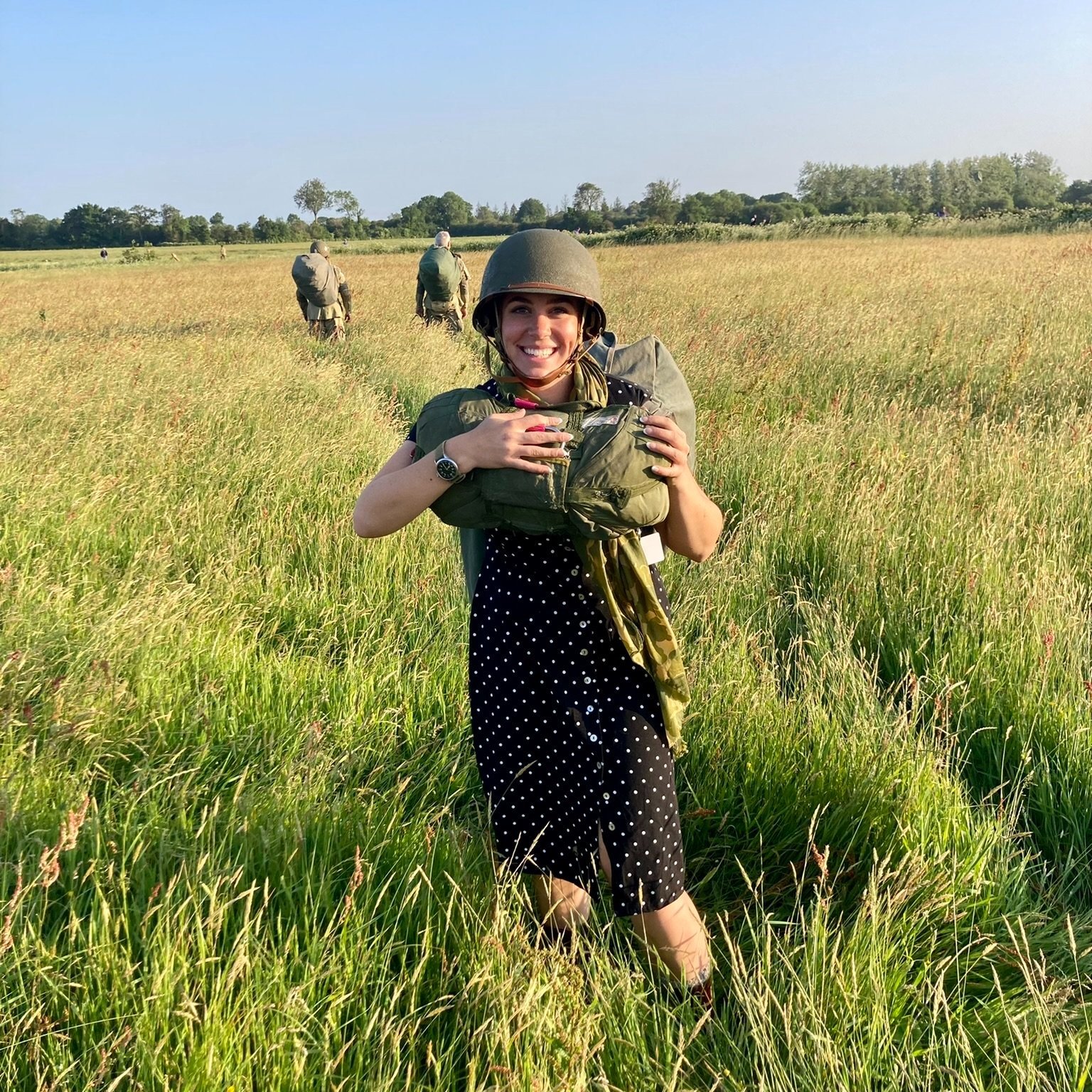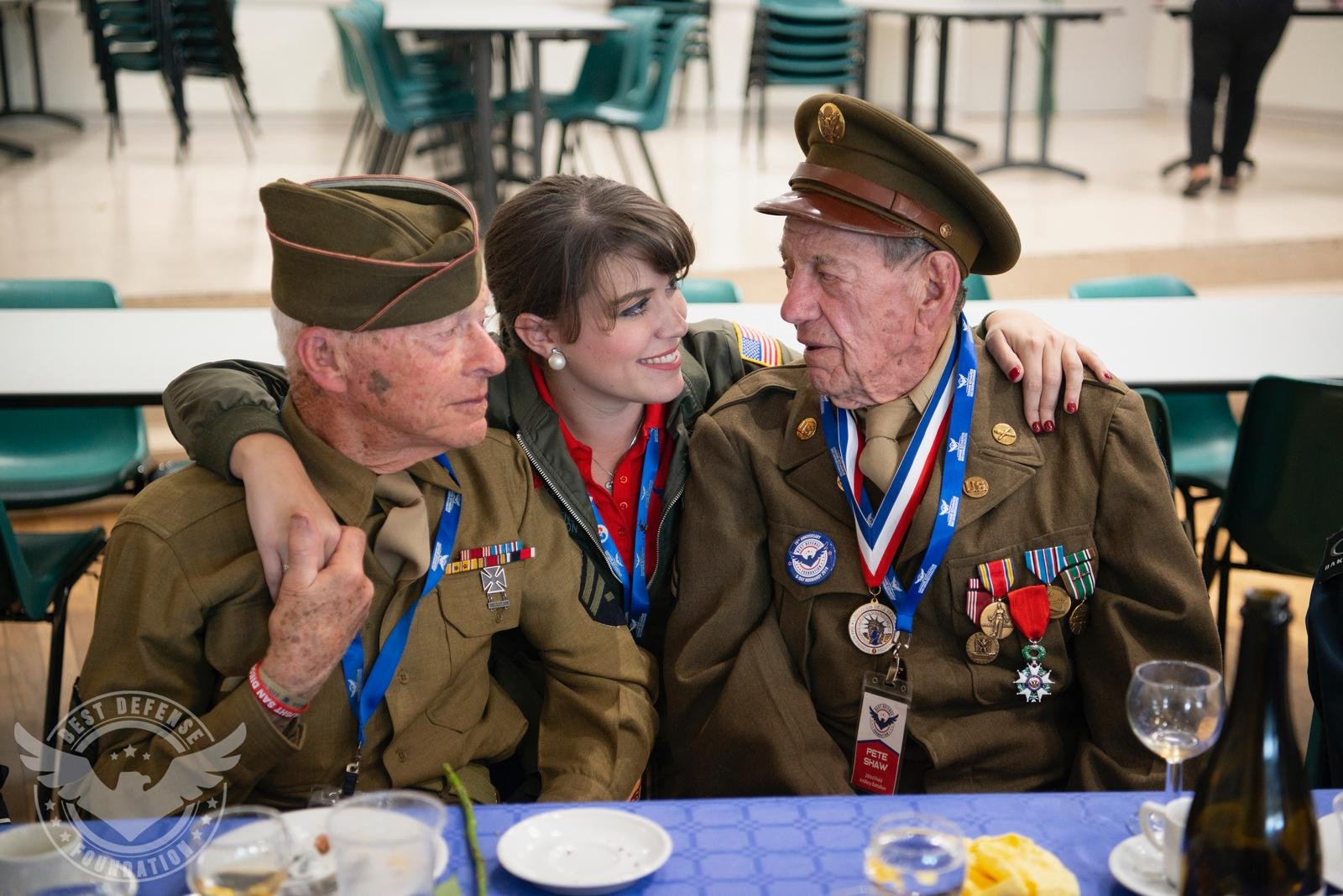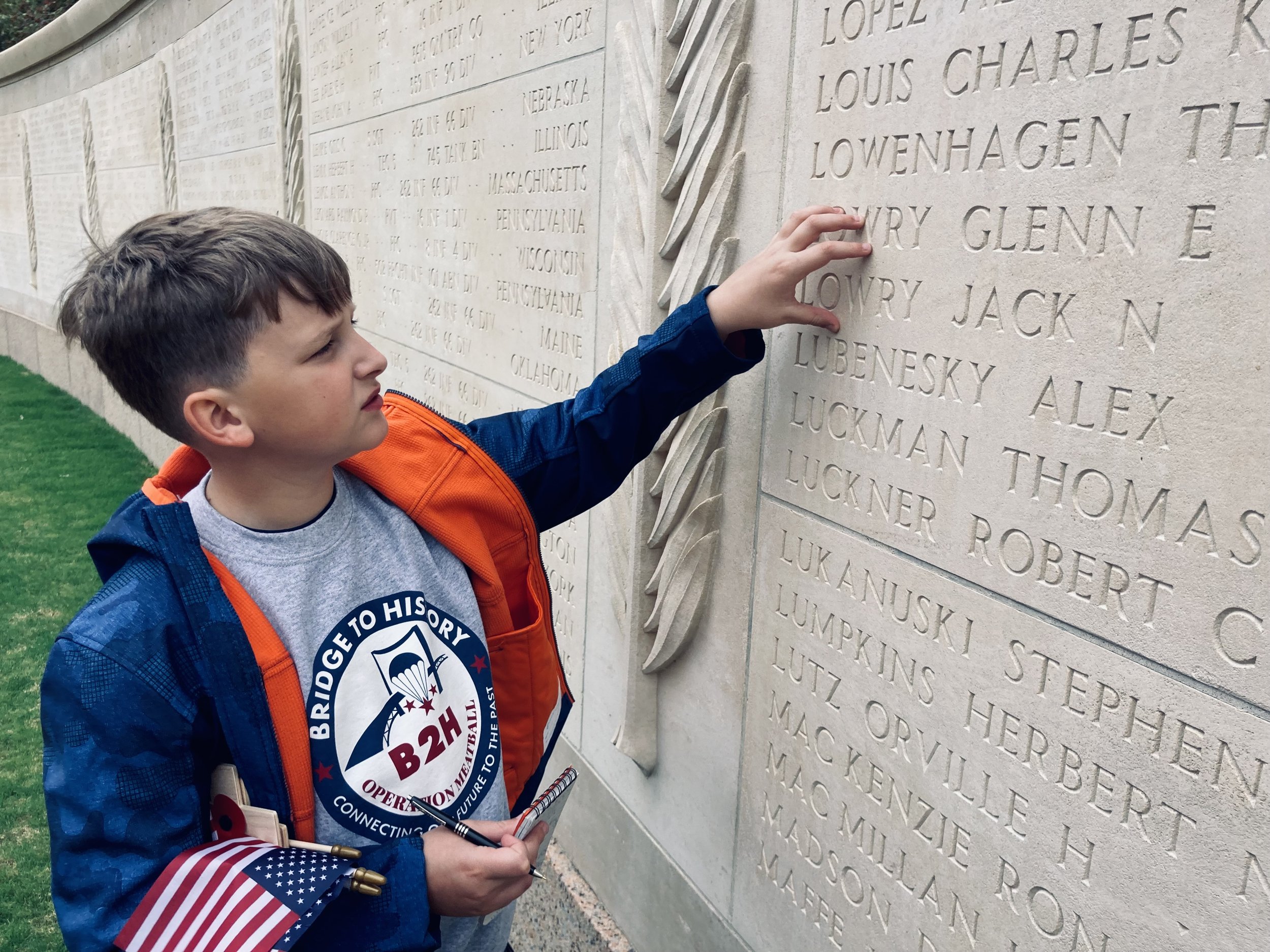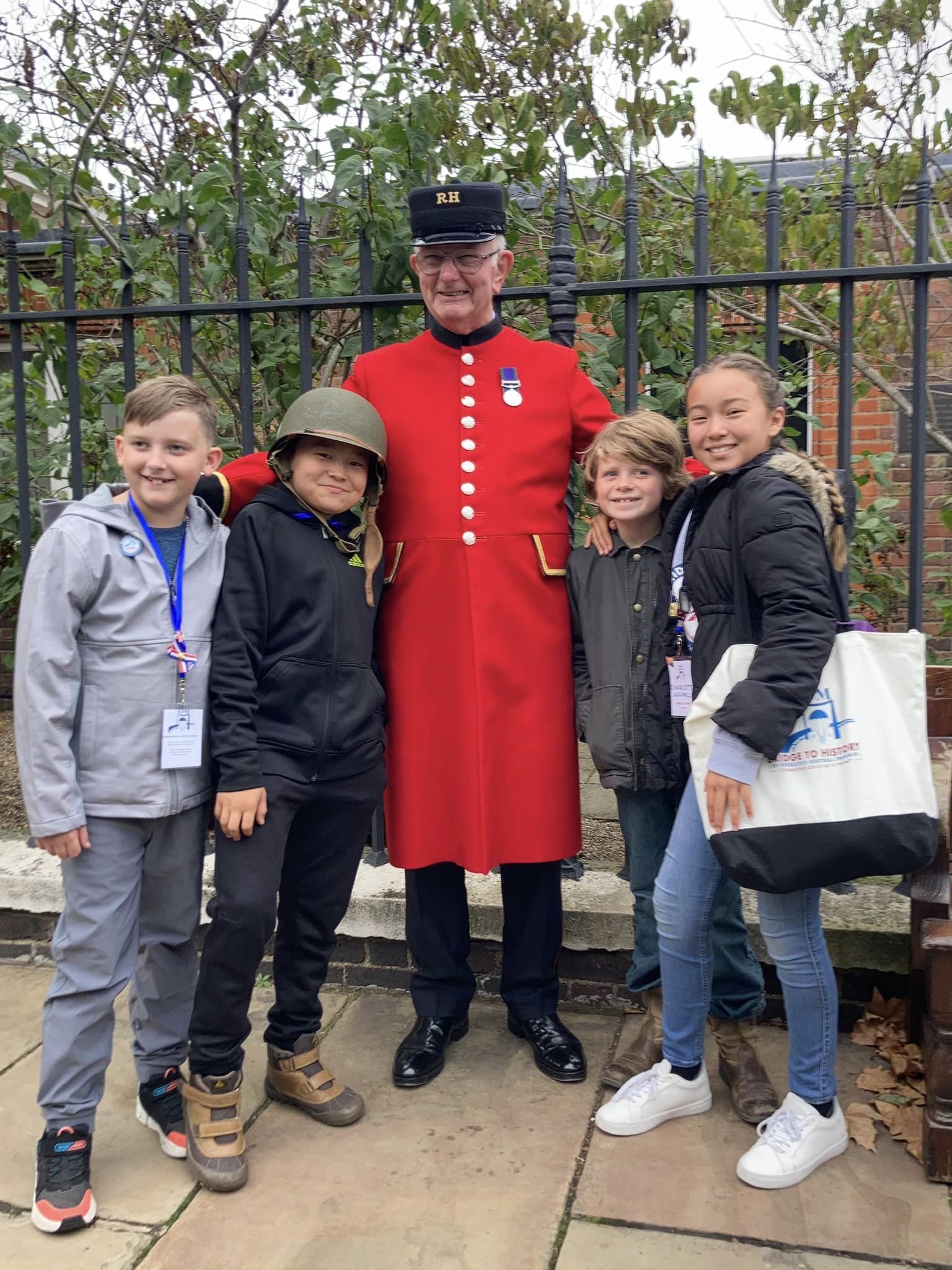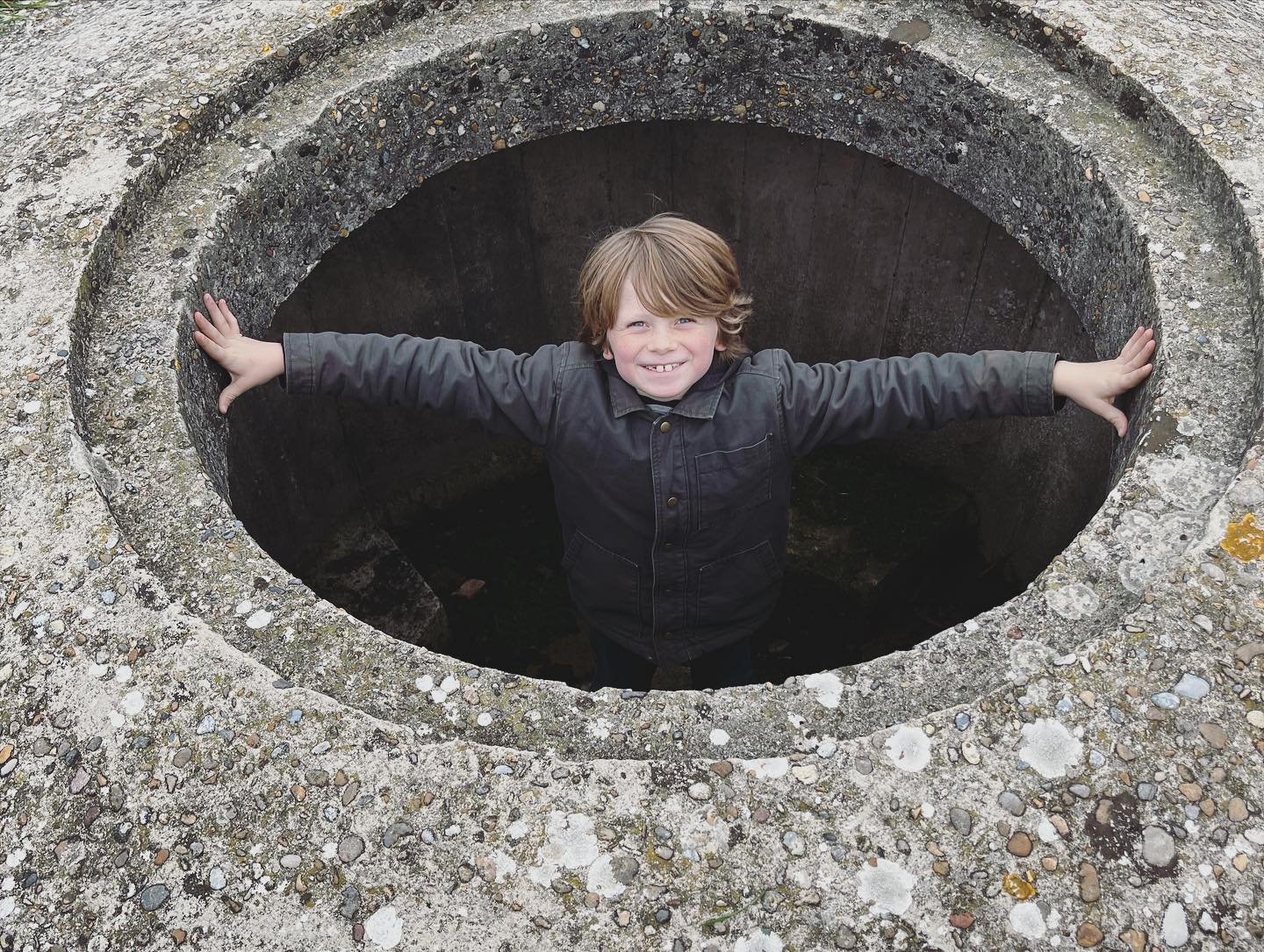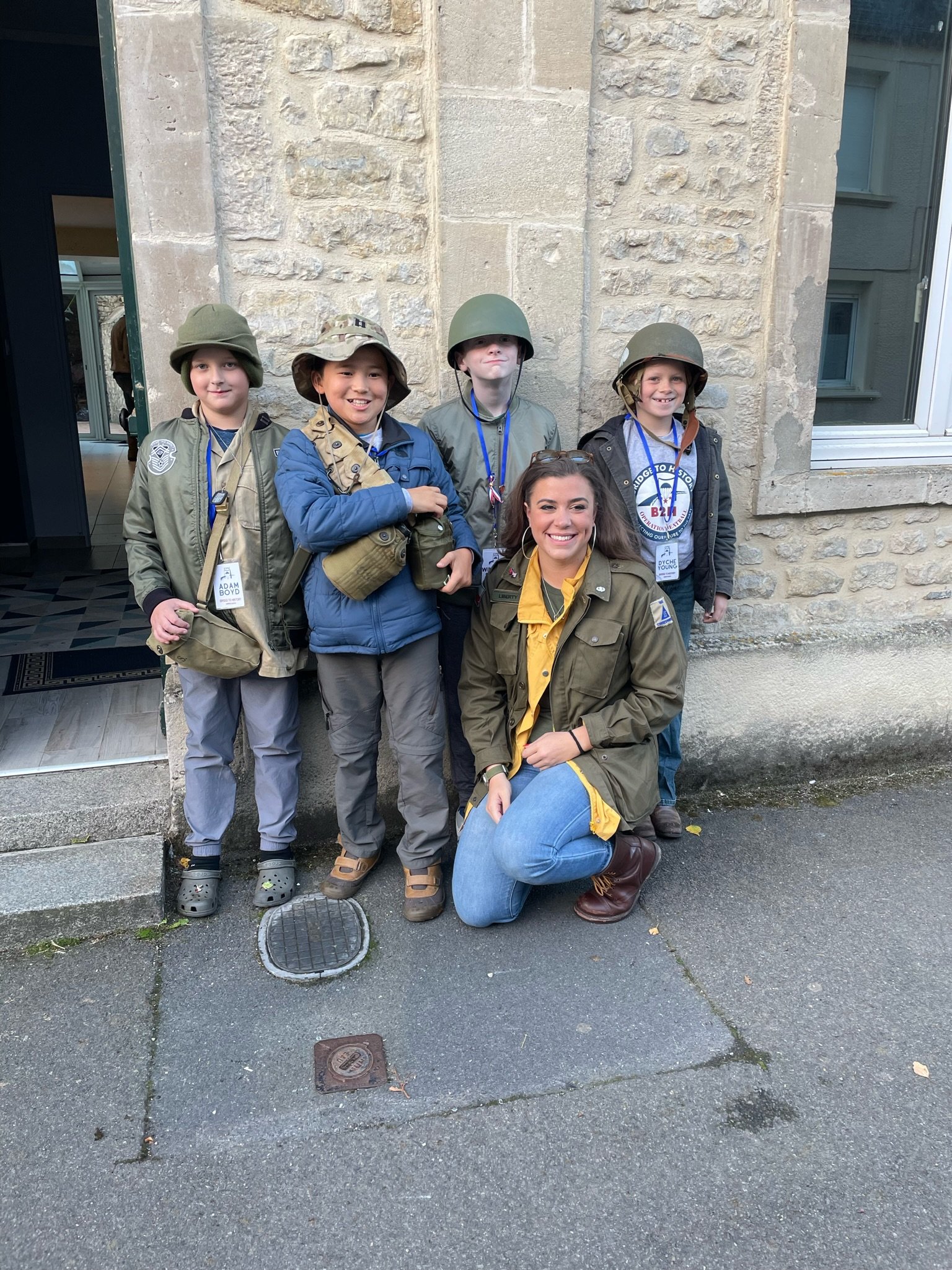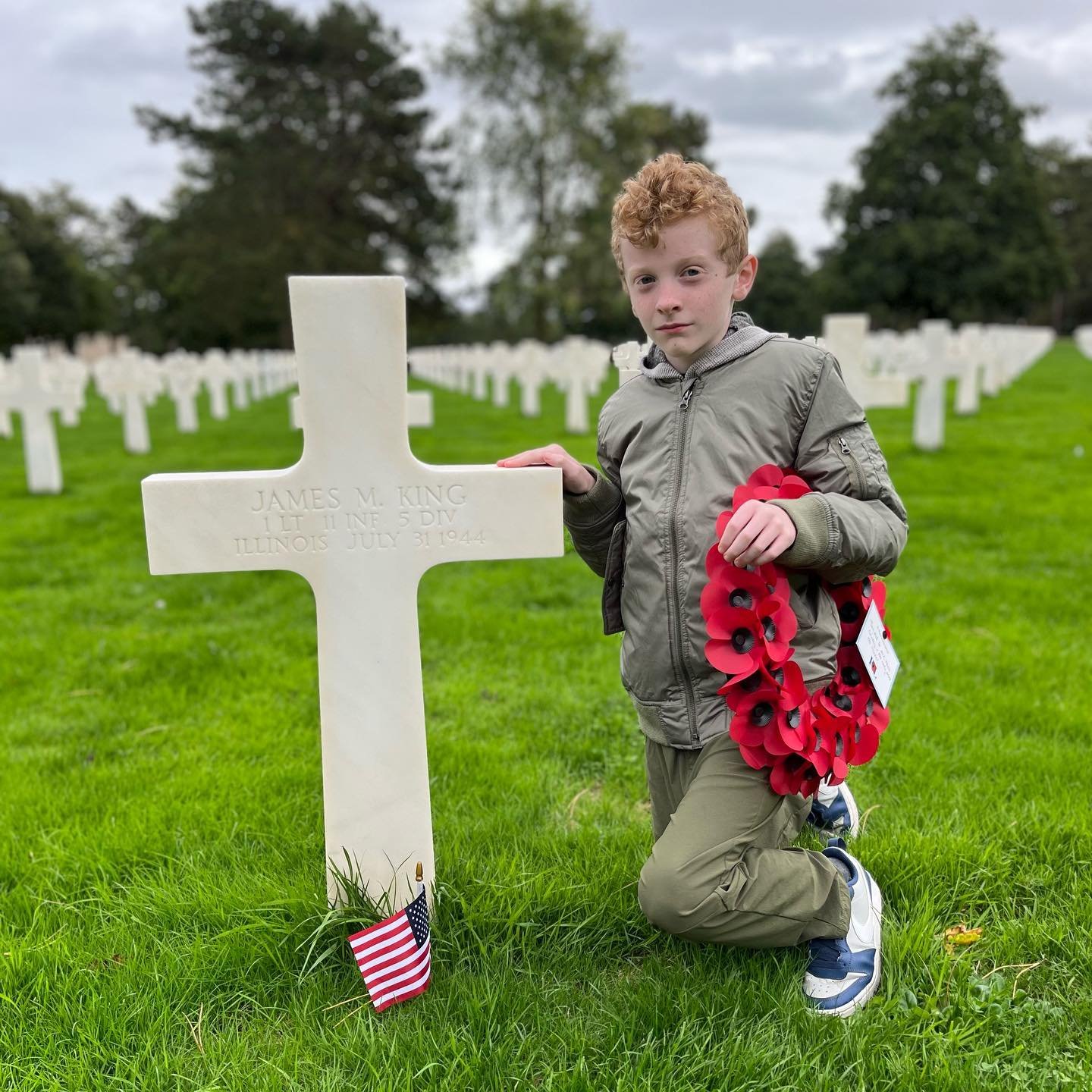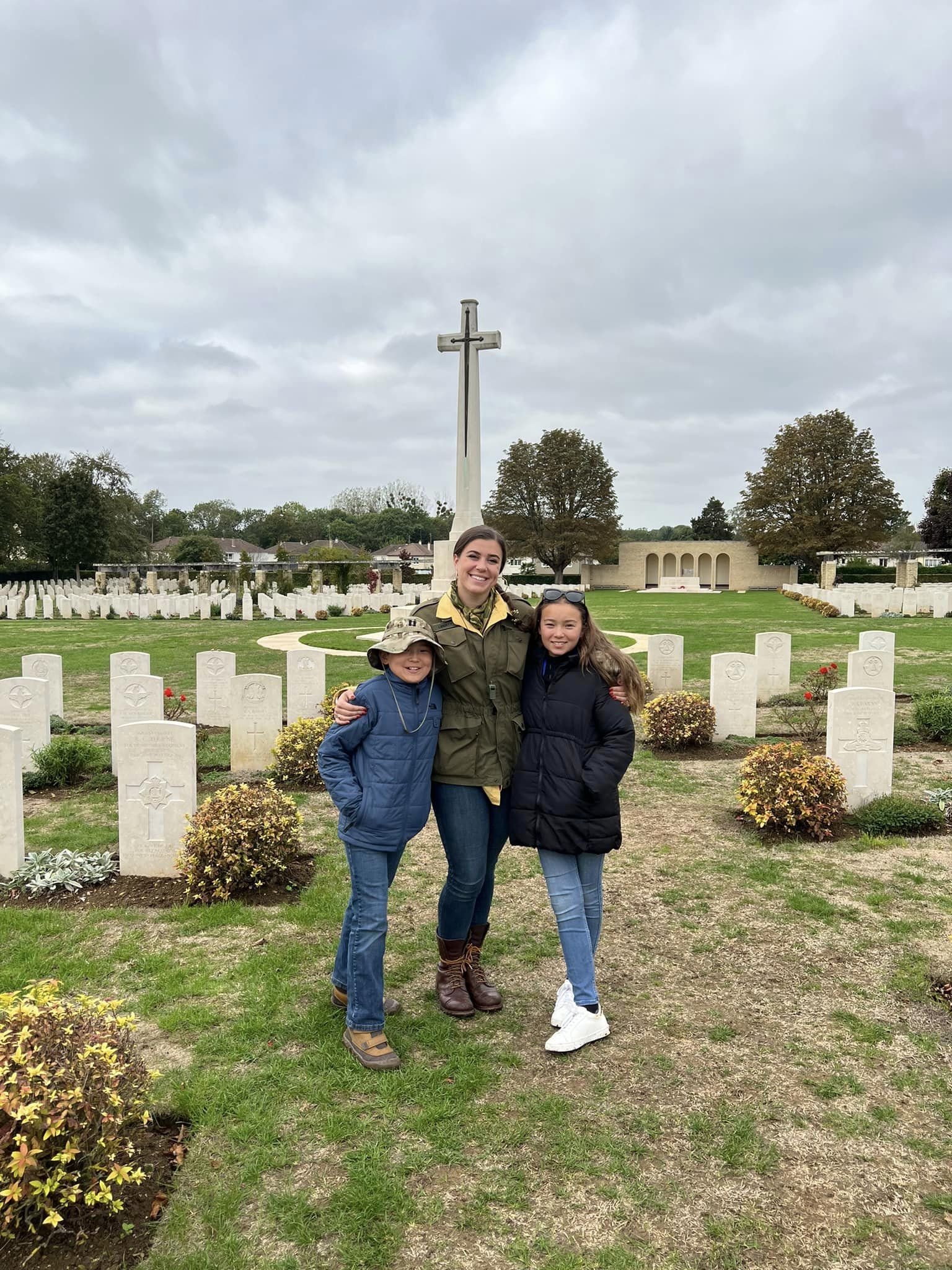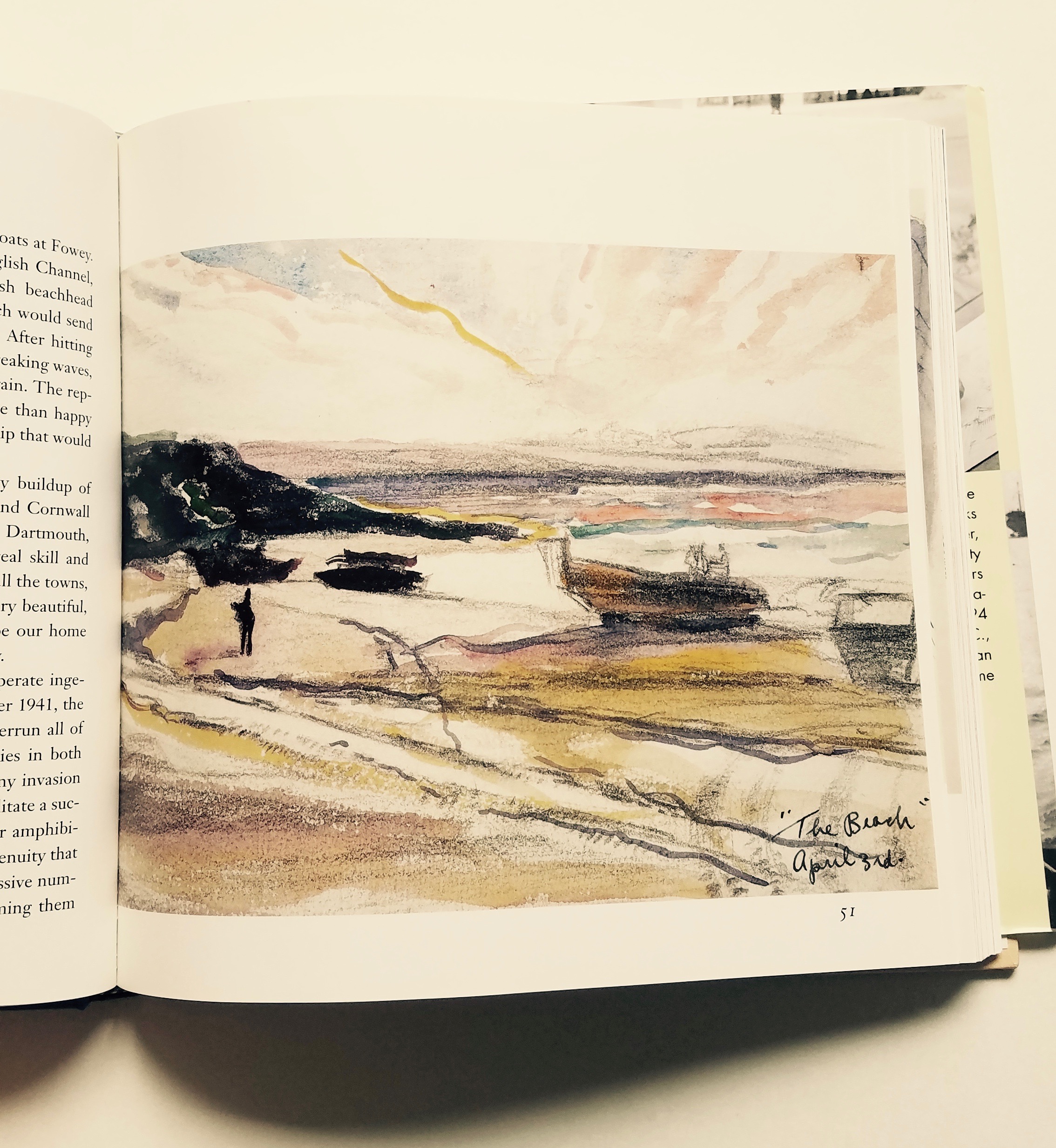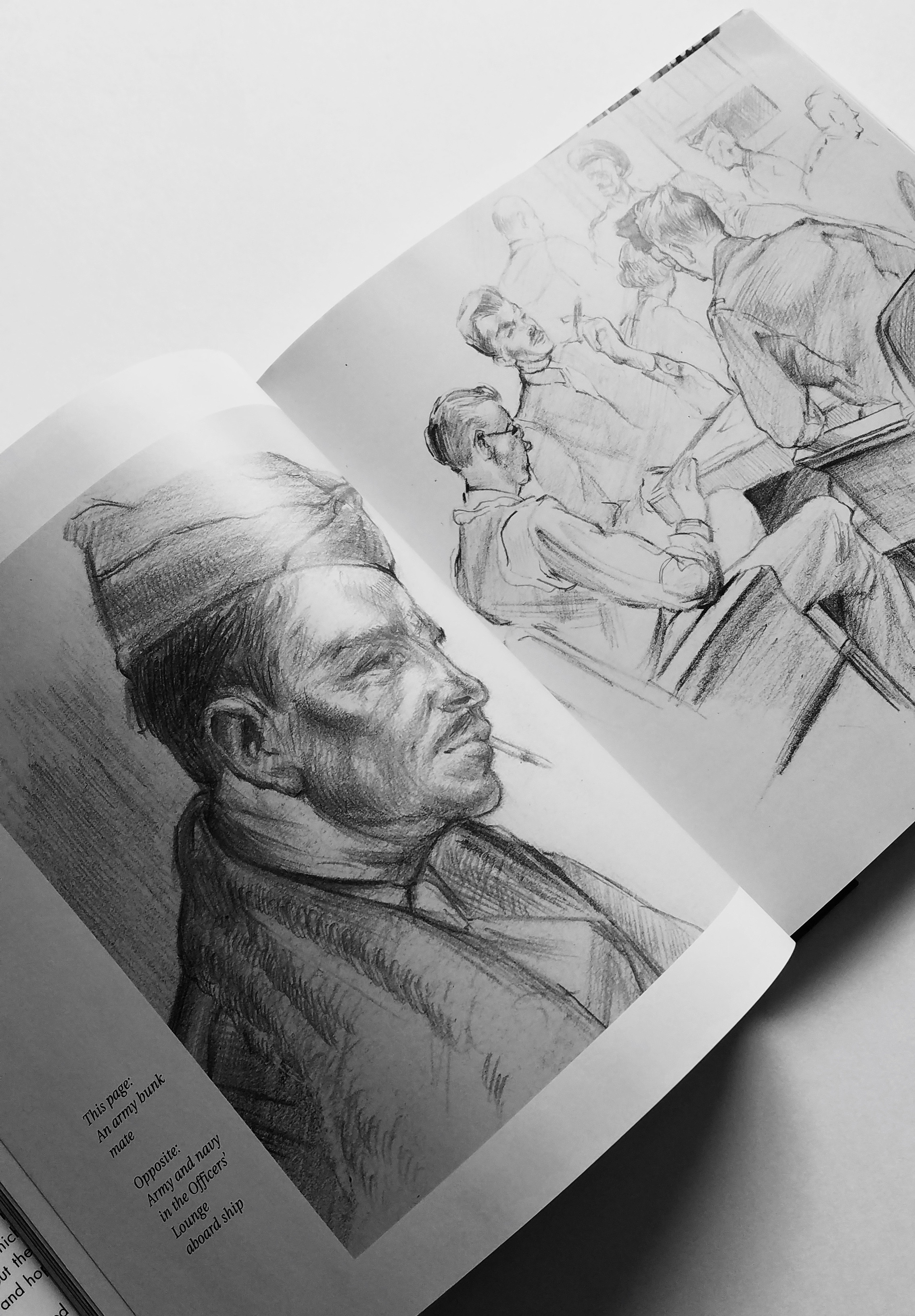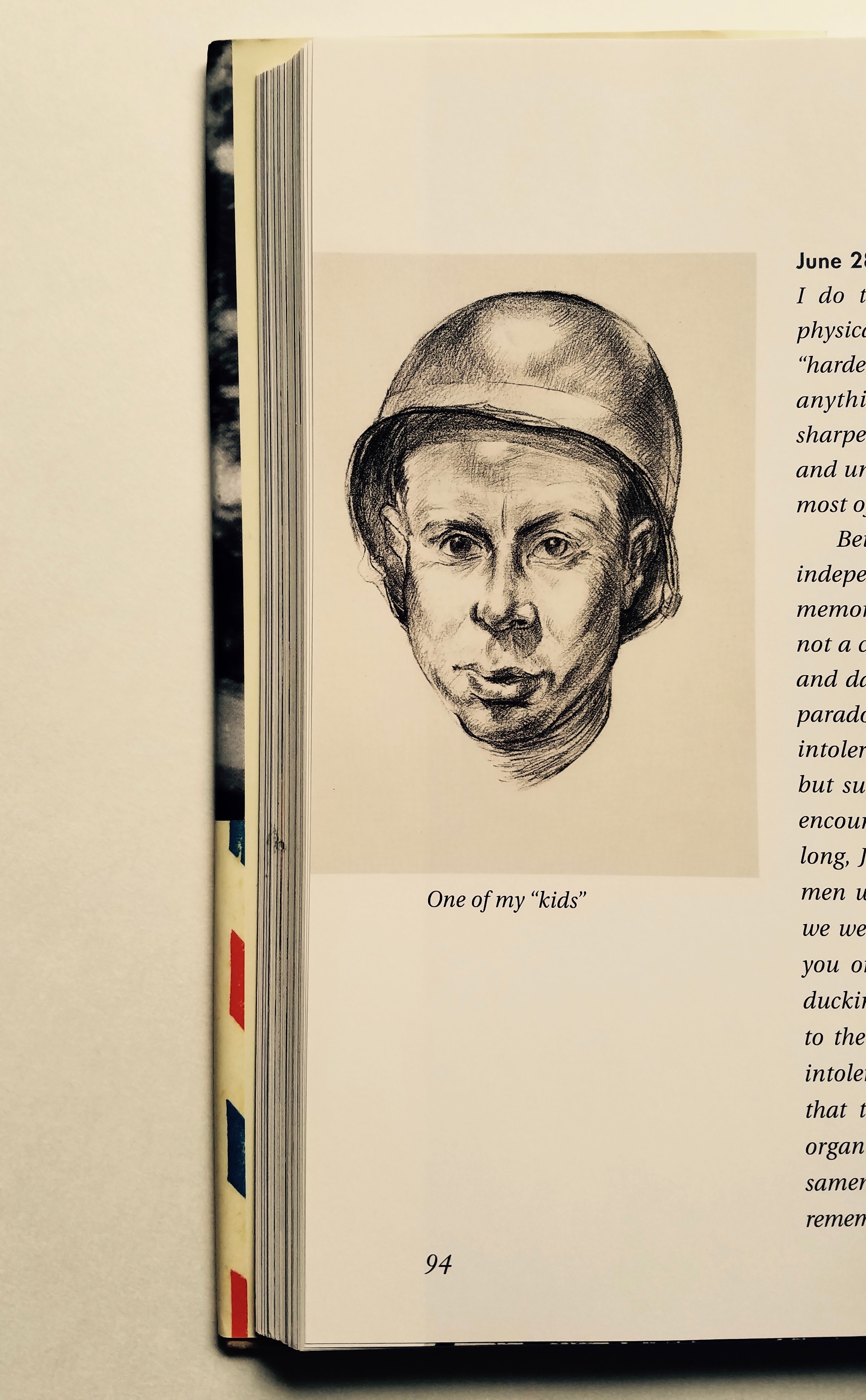A Promise Made: 10 Years Later
/Here in Normandy the rescue began. Here the Allies stood and fought against tyranny in a giant undertaking unparalleled in human history.
- Ronald Reagan at the 40th Anniversary of D-Day
The countdown to the 80th anniversary of D-Day has started. We are just a couple of weeks out. An estimated 2 million people will be in attendance to commemorate 80 years since the great amphibious invasion that ushered in the beginning of the end of World War II in Europe.
10 years ago this month, my sisters and I determined to get our family to Normandy to keep a promise to an old British D-Day veteran we had met some years before. We promised him that if he “stuck around” till the 70th, we would meet him in Saint Mere Eglise.
June 06, 2011 - JUNO BEACH WITH BRITISH VETERANS WHO CAME ASHORE SO MANY YEARS BEFORE… i was about 14 here.
Blogs were still a thing in 2014, so we started OperationMeatball.com as a way of keeping track of that trip. Before the trip was over we realized it was so much bigger than just a blog and just a trip. That promise I had determined to keep for my British Vet turned into a much bigger promise – a commitment to hundreds of WWII veterans to keep their stories and their names alive.
Throughout the process of cataloging their stories and memorializing their legacies, these veterans became the dearest of friends. The mission of Operation Meatball grew. We learned about more than just their war service… We learned about what it was that separated their generation from others. How growing up in the Great Depression cultivated in them a special grit which served to carry them through the hardships of World War II and beyond.
Some years ago, I jokingly told an old friend, a Vietnam vet, that it would be hard to find a man because I had grown up with such spectacular examples of masculinity and patriotism. “Liberty,” he responded quite gravely. “The character and quality you see in their 90s didn’t happen overnight. This was a lifelong process of growth. It’s the whole encompassing story of their lives. That made them what you see today.”
That sentence stuck with me when I considered everything I learned from the World War II vets… It’s why today I try and tell their WHOLE story. The good and the bad, the growth, the hardships, the gains, the losses. Because it’s the whole story.
101st airborne sweetheart, tom rice at the 75th of dday.
We’re here to mark that day in history when the Allied armies joined in battle to reclaim this continent to liberty. For 4 long years, much of Europe had been under a terrible shadow. Free nations had fallen, Jews cried out in the camps, millions cried out for liberation. Europe was enslaved, and the world prayed for its rescue.
- Ronald Reagan at the 40th Anniversary of D-Day
Next month I will be jumping into Normandy with the Round Canopy Parachute Team as we commemorate the 80th anniversary. 10 years ago, when I had just started Operation Meatball, I watched my first Parachute jump in Sainte-Marie-Du-Mont, Normandy, France. It was beautiful; it was inspiring; it was emotional.
It’s a full circle moment for me. A way of honoring and remembering the veterans who I have grown up with and who shaped my life and the future of our country.
So many years I’ve sat at La Fiere Bridge chatting and holding the hands of veterans, paratroopers, who many moons before had made that night jump into Normandy. We watched the men fall from the sky, and they told me what it was like on that night of nights.
Now it’s my turn.
members of the oss/jedburgh team prepare to make a parachute jump into enemy occupied territory
Wanted: Volunteers for immediate overseas assignment. Knowledge of French or another European language preferred; Willingness and ability to qualify as a parachutist necessary; Likelihood of a dangerous mission guaranteed.
I will be representing a special group who jumped into France… Not on D-Day, but the days before and shortly after - the women of the OSS and SOE (Office of Strategic Services and Special Operations Executive), a select group of valiant and courageous women who volunteered to parachute under undercover of darkness into enemy occupied territory to help set up resistance movements, act as wireless operators and couriers, and over all cause as much confusion in the enemy camp as possible.
The attrition rate for these women was very high. The life expectancy for a wireless operator in France was six weeks. If caught, the women were tortured or sent to concentration camps where they were gassed and killed.
Some of these women left children at home or a husband in the service. But they knew they were highly qualified – speaking multiple languages and having a sharp acumen for learning… And it was their way of serving their country at a time when women were not allowed near the front lines, with the exception of the nurse Corps.
The services they provided the Allies from 1942 to 1945 was invaluable. There were a few select women in particular on whom the Germans put a high bounty if caught. But nevertheless they continued tirelessly.
It’s a very special thing to be able to represent these women. They carried their jobs off with courage and femininity and they played their part in the shaping of the New World.
I have full confidence in your devotion to duty and skill in battle.
We will accept nothing less than full Victory!General Dwight D. Eisenhower
The world today has so much going on. We have access to more information than we know how to handle. There is continual fighting with casualties around the world. We read about them and see images every day that would break the hardest of hearts.
There is so much tragedy and loss and worry right now that perhaps one would ask why travel to France NOW? Why is the 80th important? Is this a holiday? Is this a joy trip?
Well, of course anytime one gets to travel overseas, it is a gift. But this is a critical time in our history. The world needs hope and the world needs to remember.
France remembers. England remembers. America has to remember too.
We have to remember the sacrifices of the thousands of men who lost their lives on D-Day. Of the soldiers who had the courage to continue across that beachhead, even after seeing their best friend’s body explode in front of them. Their willingness to put one foot in front of the other, day after day after day.
“I lost my best friend during WWII. He was killed in action on or about July 10, 1944, in Normandy, France. I was in the hospital in England at the time and didn’t know he died until I rejoined my unit... He had a daughter, Sue... She was about 3 years old when her father, Raymond, was drafted in the army and she never saw him again. For 60 long years, Sue tried to find out what happened to him or if anyone knew him. I responded to a notice in an army (military) magazine that had her name... and called her right away. When she answered the phone, I told her who I was and that I was a good friend of her dad. I identified his physical features such as height, weight, color of hair, and a slight gap between his two front teeth. She let out a yell and told her granddaughter, who was nearby, that there is someone on the phone who knew him. After 60 long years she finally found someone who knew him. Liberty, I am telling you this because from the bottom of my heart it was (still is) one of the most compassionate things I ever did in my life.”
Lee Cason, 4th Infantry Division Utah Beach
Photo credit: best defense foundation / patrick mccue
13 years ago, a D-Day Vet told me how he survived without fear. “Every morning I woke up I would say, ‘Well Don, today is the day I die.’ And when I got to the end of the day and hadn’t been killed, I would say. ‘Well Don, you made it through another day. Get some sleep. You will probably die tomorrow.’”
He did this through months of combat. He expected that death was the most likely outcome, and putting aside that fear of death, he was able to be a better soldier, he was able put one foot in front of the other, until it was time to go home.
67 years later, he returned to the beaches of Normandy. But this time he had children, grandchildren, a beautiful wife, decades of happiness, and gratitude and remembrance for each of his friends who didn’t make it to the end of that day.
Let us make a vow to our dead. Let us show them by our actions that we understand what they died for. Let our actions say to them the words for which Matthew Ridgway listened: “I will not fail thee nor forsake thee.”
- Ronald Reagan at the 40th Anniversary of D-Day
On the 75th anniversary, I was privileged to go with a group of D-Day veterans who were returning to Normandy with the Best Defense Foundation.
Many precious and special moments happened that trip that I hold and cherish. But one in particular, I’ll never forget.
In our group we had a very special man named Russell Pickett. He had come ashore on Omaha Beach with the doomed A Company, 116th Infantry Regiment. We all know the story of how they were massacred on landing. How the small town of Bedford would lose 19 men on that day, becoming the highest per capita town in America for losses on D-Day.
Russell himself had been horribly wounded, and while this was his second trip back to Normandy, it was the first one where he would actually go back to the beach where his life changed forever.
Russell was a quiet, humble, Christian man. He hadn’t always been that way… He carried anger and bitterness and nightmares with him for years after the war, making his life miserable. But then one day he was saved and everything changed. He found hope and for the first time was able to handle the nightmares.
rUSSELL pICKETT
The first morning in France, Russell asked if I would come help him with something. I was happy to oblige… Quietly and almost a little embarrassed, he asked if I would help clean an open wound on his head. It needed daily attendance otherwise it would ooze a very distasteful substance.
This started our daily ritual. I would go to his room where he would be sitting on the edge of his bed, dressed neatly and very nicely. Some mornings he already had his hearing aids in and some mornings he struggled to replace the battery, so I would have to knock a little louder.
I would clean the wounds on top of his head, and we would chat. About life and about God. Pure Christian love poured from his heart, and in his gentle, southern voice, he would share wisdom gathered from a life that had been long, at times hard, but at the end of the day very fruitful.
Some mornings while I tended to him, I would just start crying, visualizing the scenes of the beach that day, and wondering how someone so gentle and kind could survive and carry so much love still.
These few minutes were my favorite. Not the hullabaloo and the celebrations, the speeches, the music, and the fanfare… But those quiet moments with a beautiful soul, who had endured so much, and yet at the end of the day was able to say, “God is good. His grace is sufficient for me.”
I haven’t really thought about this moment in a couple of years. The last 10 years have been full and sometimes I worry about all the stories I have forgotten or didn’t manage to get written down. And honestly, the emotional taxation of almost 2 decades of spending time with these dear national treasures makes one want to pause or even run away.
But then I think about these passages of time with Russell… where I saw the face of God in a 94-year-old man. And it’s all worth it. These memories are a whisper saying, “This is still important. You have to tell people. They have to remember.”
Why? Why did you do it? What impelled you to put aside the instinct for self-preservation and risk your lives to take these cliffs? What inspired all the men of the armies that met here? We look at you, and somehow we know the answer. It was faith and belief; it was loyalty and love. The men of Normandy had faith that what they were doing was right, faith that they fought for all humanity, faith that a just God would grant them mercy on this beachhead or on the next. It was the deep knowledge — and pray God we have not lost it — that there is a profound, moral difference between the use of force for liberation and the use of force for conquest. You were here to liberate, not to conquer, and so you and those others did not doubt your cause. And you were right not to doubt.
- Ronald Reagan at the 40th Anniversary of D-Day
We live in a generation of fatigue and historical amnesia. People have fallen asleep and forgotten.
This is why it’s important on the 80th anniversary of D-Day for me to go over there and meet with the very last of the last. To make this jump to commemorate and honor them. It’s my responsibility to tell their story, the story witnessed through the eyes of someone who grew from up from childhood to adulthood with these national treasures.
Faith and I will jump into Normandy and we will celebrate the gallant boys we’ve known. "Boys?” you say. Yes. Magic happens when the vets return to Normandy. The clock is turned back and they become boys again. They tell silly jokes, vie for attention, act like they’ve never seen a wheelchair before, and show off for the pretty girls.
One year we were at a friend’s chateau, talking with a couple of D-Day vets. An older man in a t-shirt, khaki shorts, and sneakers kept trying to interject. No one way paying attention to him. He walked off in a huff exclaiming, “Fine! If no one will listen to me, I’ll go put my jump jacket on and see if that helps.” He came back a few minutes later so adorned and received the attention he was looking for. The girls and I laughed so hard about it, and later would tease him endlessly.
It was Guy Whidden, 502nd Parachute Infantry Regiment, 101st Airborne Division.
I hope you all will join us virtually as we go back to honor and commemorate. 10 years ago, ages 14, 16, and 17, my sisters and I went around the countryside endeavoring to meet every veteran possible. Faith had a “menu” of old WWII songs she sang acapella to the veterans. I had a recorder, pen, and paper. We thought it might be the last time for a gathering like this. It wasn’t the last. But you never know when it will be. And this time, I’m pretty sure the 80th will be the last.
I asked Russell Pickett if, knowing everything he knew now; if witnessing the horrors and the bloodshed that could never be erased from his memory, and if knowing he would carry those physical and emotional scars with him his entire life, would he do it again? Would he do it again knowing everything?
And his answer was, “Of course, Liberty. Of course, I would do it again.”
Operation Meatball
Honoring Veterans & Connecting Them With the Youth of Today





